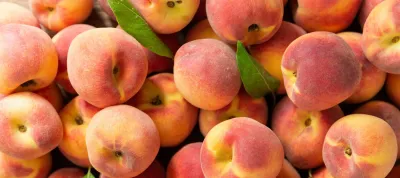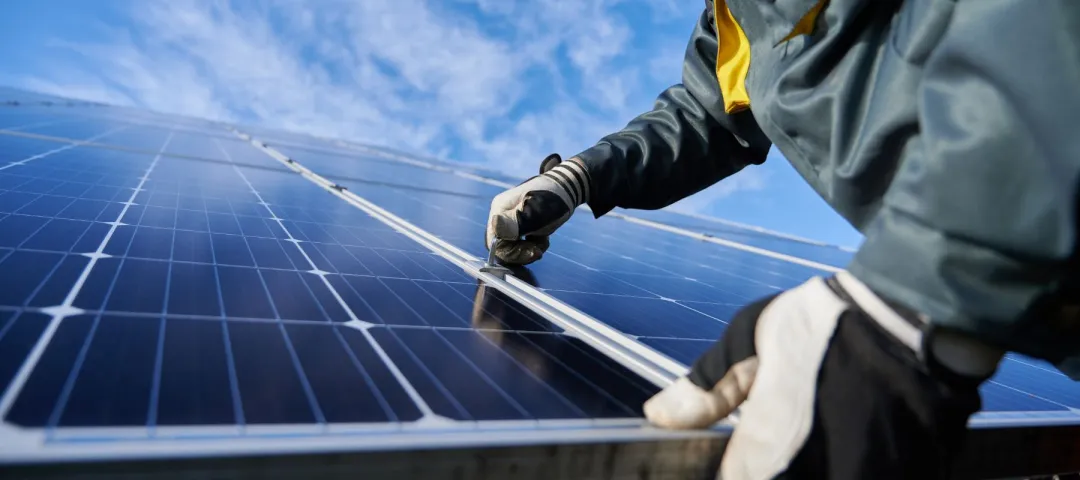General information
RDP Priority
- P3. Food chain and risk management
RDP Focus Area
- 3A: Agri-food chain integration & quality
RDP Measure
- M04: Investments in physical assets
Beneficiary type
- Small-Micro Enterprise
Summary
Alexander S.A. is a leading fruit importer, processor, and distributor in Greece. It has significantly grown through its commitment to environmental sustainability. CAP funds helped the company invest in solar panels, a biomass boiler, and sunflower husk pellets to reduce its carbon footprint and combat climate change.
The installation of solar panels, generating 1MWh on their facilities, has enabled Alexander S.A. to harness renewable energy, reducing reliance on fossil fuels and decreasing greenhouse gas (GHG) emissions. Using sunflower husk pellets as a renewable energy source also contributes to the company's sustainability goals. Such pellets transform food waste into valuable energy.
Through these CAP-funded green initiatives, Alexander S.A. has enhanced its operational efficiency and strengthened its commitment to environmental stewardship. This has positioned the company as a sustainability leader for the Greek fruit industry, promoting a greener future while supporting its growth and success.
Results
Overall, the project successfully achieved its objectives of integrating sustainability into operations, fostering economic growth, and enhancing societal well-being. Project investments not only combat climate change but also position the fruit firm as a leader in sustainable agriculture, fostering long-term viability and ecological responsibility. Notable results include:
- 3.5 new jobs contributing to economic growth and stability in the community;
- GHG emissions cut by 50% annually through the adoption of renewable energy sources and sustainable practices;
- 46% reduced external energy consumption by implementing solar panels and biomass boilers;
- 1 200 tonnes of food waste prevented annually by reusing sunflower husk pellets for energy, promoting circular economy principles;
- saving around EUR 200 000 annually in energy costs from renewable sources and operational efficiencies.

Promoter
Alexander S.A.
Funding
Total budget 1 185 000 (EUR)
RDP support: 592 500 (EUR)
Private/own: 592 500 (EUR)
Keywords
Ressources
Documents
Context
In the context of climate change, fruit firms can consider sustainable practices that mitigate their carbon footprints. Investing in solar panels provides renewable energy sources that harness sunlight to generate electricity, thereby reducing reliance on fossil fuels. The implementation of solar technology not only lowers operational costs but also enhances a firm's public image as an environmentally-conscious entity.
Furthermore, integrating a biomass boiler can significantly contribute to reducing GHGs. Biomass boilers use organic materials such as agricultural residues and wood pellets for energy production. By converting waste into heat and power, fruit firms can minimise landfill contributions while promoting a circular economy that aligns with sustainability goals.
Reusing fruit byproducts, such as husks, as fuel pellets complements these initiatives by providing a low-carbon energy option derived from agricultural waste byproducts.
Alexander S.A. is a large Greek SME company specialising in quality fresh fruit and vegetables, canned fruits, purees, banana ripening, and fruit sector logistics. Strategic partnerships with top global growers have ensured the continued quality and variety of the firm’s product range. Recognising the environmental impact of its operations, Alexander committed to sustainability to reduce its carbon footprint and combat climate change by using support from the CAP.
Objectives
Goals for the CAP funding were to:
- reduce GHG emissions through the adoption of renewable energy sources;
- promote sustainable waste management by using sunflower husk pellets;
- enhance operational efficiency and reduce energy costs;
- strengthen the company’s environmental stewardship and sustainability practices;
- reinforce Alexander S.A.'s market position as a leader in sustainability;
- boost the company’s reputation and foster consumer trust through commitment to green initiatives.
Activities
The company installed solar panels to harness renewable energy, cutting reliance on fossil fuels and lowering GHG emissions. This phase involved assessing the energy requirements, selecting appropriate solar technology, and installing the panels to harness solar energy.
It implemented a biomass boiler powered by organic waste to generate heat for production processes, significantly minimising environmental impact. The boiler generated heat for the production processes. This installation required careful planning to ensure efficient integration with existing systems and compliance with environmental regulations.
Using sunflower husk pellets (a byproduct of sunflower seed processing) as a renewable energy source, the company turned its waste into a valuable resource, further reducing conventional energy needs. This involved setting up supply chains, storage facilities, and burner systems to effectively use the pellets for energy production.
To complement the biomass boiler and pellet fuel, the company improved waste collection, sorting, and processing methods to maximise the efficiency of biomass energy generation.
Continuous training sessions were conducted to educate employees on new technologies, safety procedures, and sustainable practices. This ensured smooth operation and maintenance of the new systems.
The project’s impact on operational efficiency, environmental sustainability, and cost savings was continuously monitored and evaluated. This involved collecting data, analysing performance metrics, and adjusting strategies as needed to ensure the project's goals were met.
Main results
The project enhanced Alexander's operational efficiency by reducing energy costs and improving waste management. By integrating advanced production techniques and forming new partnerships, Alexander has reinforced its market position as a forward-thinking and responsible business. This proactive approach has strengthened its brand image, consumer trust, and overall success.
The project achieved substantial quantitative benefits across climate and environmental action, economic gains, and societal improvements:
- created 3.5 annual employment units, contributing to economic growth and stability in the community;
- achieved a significant reduction in GHG emissions by 50% annually through the adoption of renewable energy sources and sustainable practices;
- improved energy efficiency by implementing solar panels and biomass boilers, resulting in a reduction of energy consumption by 46%;
- used sunflower husk pellets effectively, reducing waste by 1 200 tonnes annually and promoting circular economy principles;
- saved around EUR 200 000 annually in energy costs from renewable sources and operational efficiencies;
- increased revenue by expanding market share through environmentally sustainable products, capturing a growing segment of eco-conscious consumers;
- improved workplace conditions and employee well-being, resulting in reduced absenteeism and enhanced productivity;
- strengthened community relations through initiatives such as local supplier partnerships and educational outreach programmes;
- raised awareness about sustainability among stakeholders, leading to increased public engagement and support for environmental initiatives.
A new solar panel system of 1.55 MWh is also sought to generate a total solar power potential of up to 2.55 MWh.
Key lessons
The investment of fruit firms in solar panels, biomass boilers, and husk pellets represents an advantageous shift towards sustainable agricultural practices.
Solar power allows firms to reduce reliance on fossil fuels and mitigate operational costs in the long term. This transition exemplifies how adopting green technologies can enhance economic viability while addressing environmental concerns.
Using biomass boilers and husk pellets highlights an innovative approach to waste management within the agricultural sector. By converting agricultural by-products into energy sources, fruit firms are effectively closing the loop in their production processes. This not only reduces carbon footprints but also promotes a circular economy where waste is minimised and resources are optimised.
These investments also reflect a growing recognition among fruit firms of their corporate social responsibility towards sustainability. As consumer awareness regarding environmental issues increases, businesses are compelled to adopt greener practices to maintain competitiveness and brand loyalty.
Papadopoulos Taxiarchis

